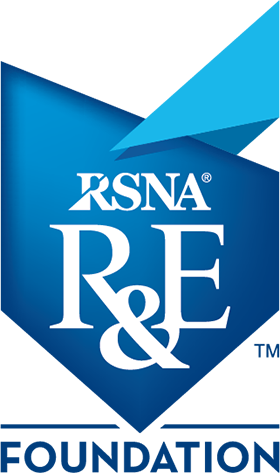Research Seed Grant
This R&E Foundation Research Seed Grant gives investigators around the world the chance to define objectives and test hypotheses in preparation for larger grant applications at corporations, foundations and government agencies. The seed data from the projects we fund will give investigators a better idea of feasibility and directionality of research before applying for more funds from other sources.
Application cycle closed
The 2025-26 application cycle for the Research Seed Grant is closed. The next application cycle will open in October 2025.
Nature of projects
Any area of research in the radiologic sciences is eligible for funding. Projects may include any of the following:
- Hypothesis-driven basic science
- Clinical investigation
- Drug, device or therapy development
- Comparative effectiveness
- Evidence-based radiology
- Ethics and professionalism
- Quality improvement
- Clinical practice efficiency
- Imaging informatics
Please note, though any of the above topics are accepted, projects focused on advancing imaging science, developing or evaluating medical imaging technology or making innovative use of imaging science to answer important biologic or clinical questions are encouraged.
This grant mechanism will be open to all levels of radiologic investigators, with an established academic appointment.
Applications should describe the unique nature of the research effort independent of existing research efforts. Greater emphasis will be placed on the likelihood of this research to attract future funding given the nature and extent of the preliminary data collected within the cycle of the grant.
Award amount
Grant recipients receive up to $60,000 for a one-year project to be used as support for the preliminary or pilot phase of that project. Funds may not be used to supplement previously-secured major funding.
Eligibility
Any investigator from anywhere in the world with an academic appointment may apply for this grant, as long as you are an RSNA member. If you’re a non dues-paying member, your scientific advisor or your co-investigator must be a dues-paying member. You must also meet the following criteria:
All applicants
- You must hold a full-time faculty position in a radiology, radiation oncology or nuclear medicine department at an educational institution.
- If you aren’t currently a full-time faculty member, but will be by the time funding starts, a letter from the department chair must be included in your application.
- You cannot have been a principal investigator on a grant or contract totaling more than $60,000 in a single year. This includes single and combined grants and contracts from government, private and commercial sources.
- You and your principal investigators cannot be employed by any for-profit, commercial company in the radiologic sciences.
- You cannot submit more than one grant application to the RSNA R&E Foundation a year and cannot have a concurrent RSNA grant.
- Funding from other grant sources must be approved by foundation staff if it wasn’t described in the original research plan.
North American applicants
You must have completed advanced training and be certified by the American Board of Radiology (ABR) or The Royal College of Physicians and Surgeons of Canada or are on track for certification.
International applicants
You must have completed advanced training and be certified by the radiology board in your country.
Additional information and instructions
For more detailed information, including applications, please review this grant's policies and procedures (PDF).
Applicant resources
We’re here to help you succeed. Check out our grant writing workshops, research and development guides and application process FAQs.
Current recipients
To view additional recipients from prior years, please use our online grant and award recipient search tool.
About the R&E Foundation

Our Research & Education Foundation provides a critical source of support for investigators. Since the Foundation’s inception in 1984 we’ve awarded over 1,900+ grants. That’s $84 million in funding for radiology research and improving patient care.